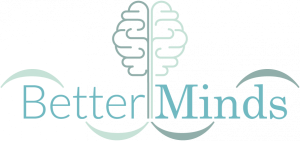Assertiveness
Assertiveness is the core communication skill and without it those who lack this skill fail to express what they truly want or believe. By not being assertive they can end up living someone else's life even if they do not realise it. Assertiveness skills are essential to break free from a co-dependent relationship and to stop others returning to a toxic one. The skill of Assertiveness allows people to feel more valued and stand up for what they believe in. In school assertiveness skills are critical to help young people to manage bullying and to better express their own needs to prevent exploitation. Assertiveness skills are critical for everyone to permit them to identify what they want and also to persist when they are challenged so that they can become the best version of themselves and meet their own potential. To support yourself and your client group to excel, make space to upskill yourself in assertiveness training, it is so much more than sticking your chest out and saying it like you mean it.
An Introduction to the Betterminds' Assertiveness Course
The Betterminds Assertiveness training is designed to equip you and your team to understand the mechanics of assertive communication so that it can be easily cascaded to services users, students or any person who is not communicating assertively.
The course is designed to explore how to challenge all forms of ineffective and destructive communication and replace it with assertiveness.
It also incorporates how to deal with those who are aggressive those who wilfully want you to change your mind and tools and techniques to assertively defuse these events.
Alongside this the course will deal with body language and how to adopt effective posture that make challenges to what you have to say less and less likely until others are upskilled in accepting your initial assertive communication
How Long is the Assertiveness Course?
The Betterminds Assertiveness Courses usually run for a single day, however, this may be extended depending on the requirements of your organisation.
What Will My Team Gain From The Betterminds' Assertiveness Course
Your team will become assertive communicators and so be better at identifying and expressing any existing issues for them and also be able to rapidly cascade this to colleagues.
The learners will also be able to cascade these tools and so promote an assertive environment where appropriate challenge skills are applied.
They will understand how passive, aggressive and passive-aggressive models of communication are not helpful nor necessary and can be replaced by assertive communication and everyone will benefit.
The training will also share how to negotiate assertively and this can also be easy cascaded to support services users and students.
The team will also be able to reduce any aggressive communication rapidly and support those who use it to recognise what was the issue and which communication approaches are acceptable.
Where Will The Betterminds' Assertiveness Course Be Useful
The Betterminds Assertiveness Course is useful in all environments where effective communication is critical. This work has been delivered to nurses, consultants, GPs, substance misuse workers, social care providers, prisoner workers housing teams, educators, adult education providers, mentors, criminal justice providers.
In the corporate sector this has been delivered to business owners, HR teams, and teams of various sizes and niches.
What Are The Primary Course Objectives
- Understand the three ways we communicate
- Understand how it impacts on recovery
- Experience a range of tools to manage assertiveness and how to help improve your own wellbeing as well as that of others
- Recognise how to implement those tools to best support service users
- Be a more confident, capable and empathetic practitioner.
What Else Will Our Team Learn
- You and your team will learn ways of negotiation and decision implementation to result in a positive outcome
- You and your team will learn how to operate assertively
- Your team will learn how best to support their colleagues and client
- The importance of knowing the balance between your rights and your responsibilities
- You will foster a calm and effective working environment
- Staff stress is likely to fall
- Staff sickness is likely to be reduced
- Staff retention is likely to improve
